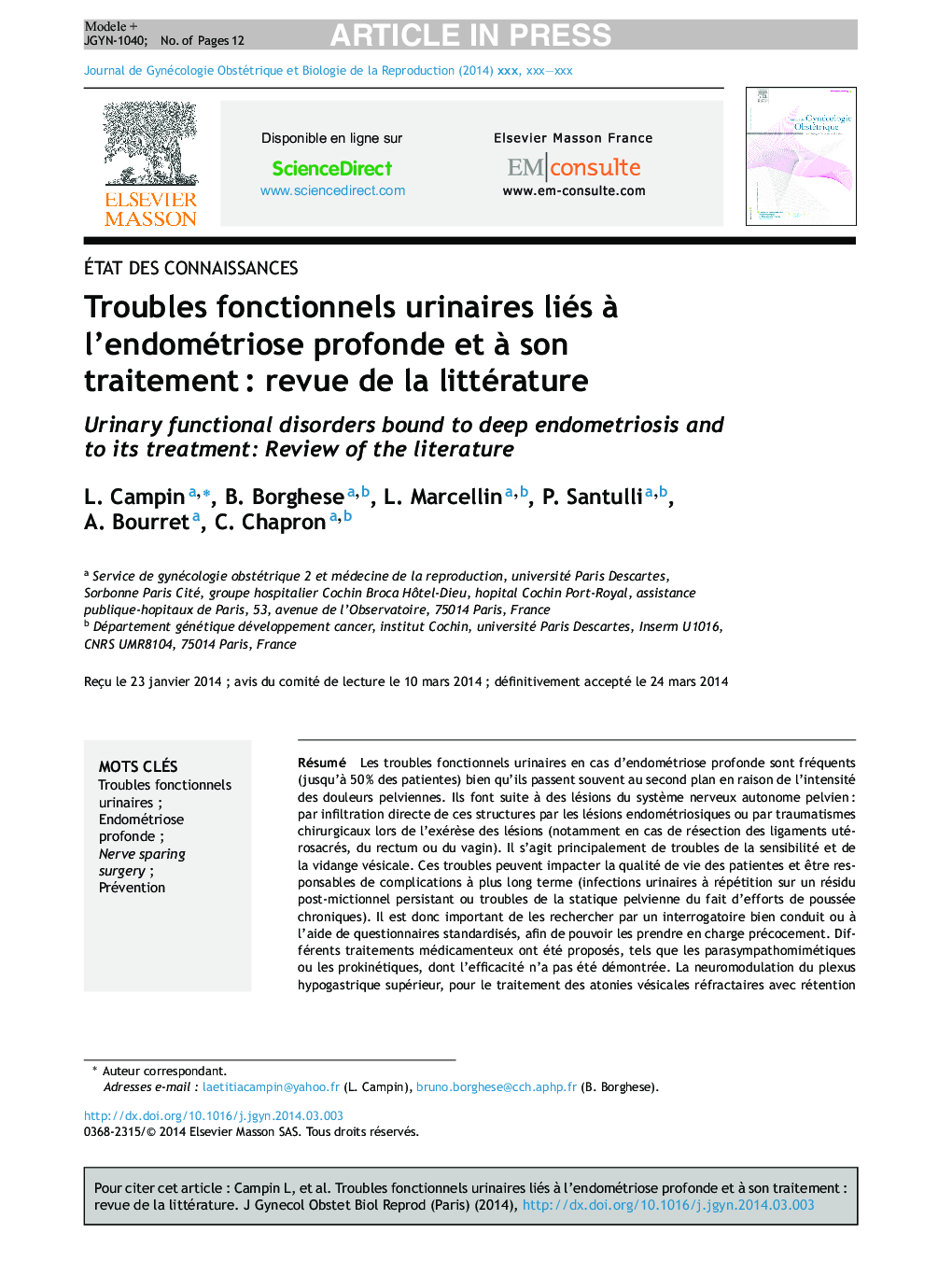| Article ID | Journal | Published Year | Pages | File Type |
|---|---|---|---|---|
| 3272495 | Journal de Gynécologie Obstétrique et Biologie de la Reproduction | 2014 | 12 Pages |
Abstract
Lower urinary tract disorders in case of deep endometriosis are common (up to 50Â % of patients), although often masked by pelvic pain. They result from damage to the pelvic autonomic nervous system by direct infiltration of these structures by endometriotic lesions or surgical trauma (especially in resection of the uterosacral ligaments, rectum or vagina). These are mainly sensory disturbances and bladder voiding dysfunction. They impact quality of life and could be responsible for long-term complications (recurrent urinary tract infections on a persistent residual urine or pelvic floor disorders due to chronic thrusting). It is therefore important to diagnose and treat early these troubles by well-conducted interviews or standardized questionnaires. Different drug treatments have been proposed, such as cholinergics or prokinetics, but their effectiveness has not been demonstrated yet. Neuromodulation of the superior hypogastric plexus for treatment of refractory atonic bladder with persistent urinary retention after surgery seems promising but should be confirmed by further studies. To date, standard treatment of urinary retention after surgery remains self-catheterization. In terms of prevention, surgical nerve sparing techniques have been developed in order to minimize intraoperative injury of pelvic nerve plexus and reduce postoperative morbidity.
Related Topics
Health Sciences
Medicine and Dentistry
Endocrinology, Diabetes and Metabolism
Authors
L. Campin, B. Borghese, L. Marcellin, P. Santulli, A. Bourret, C. Chapron,
